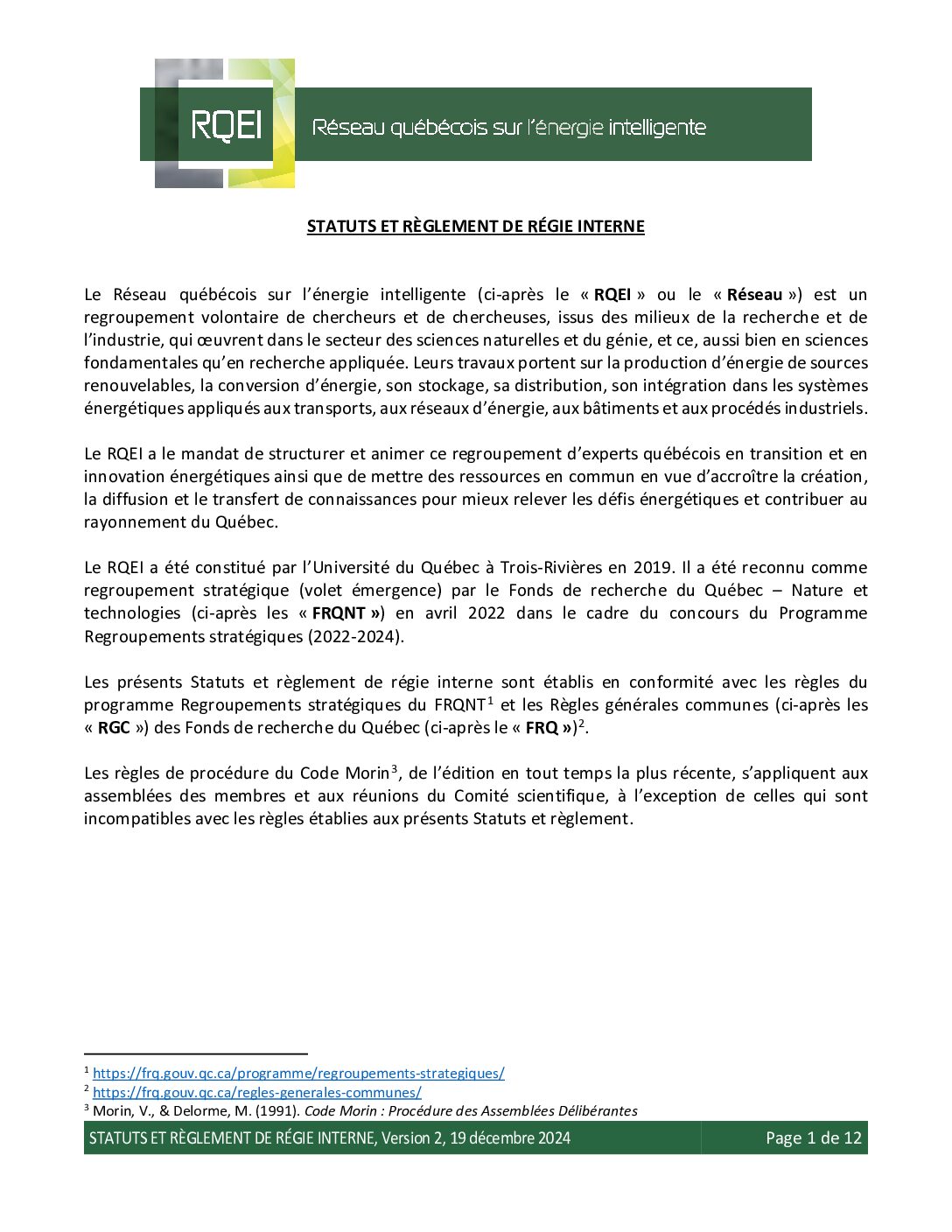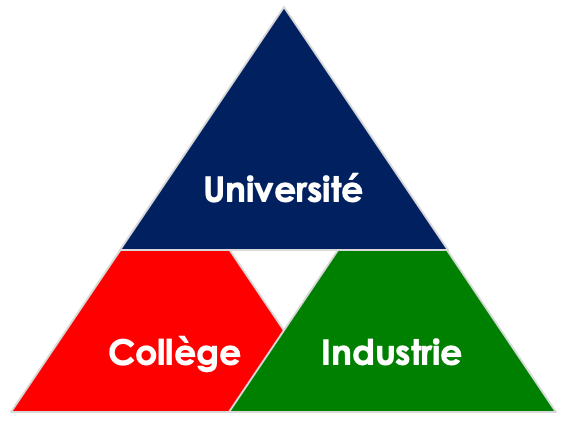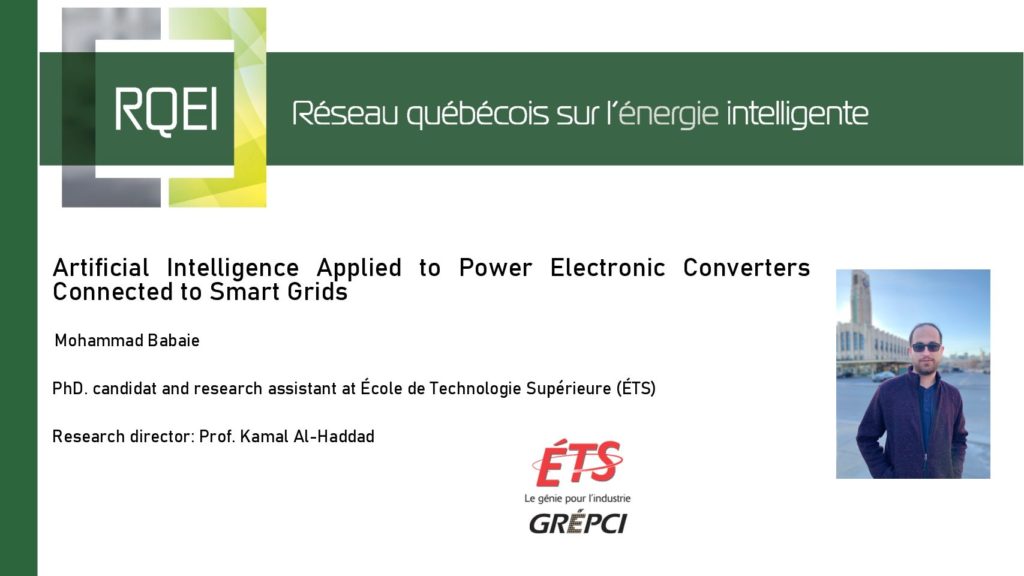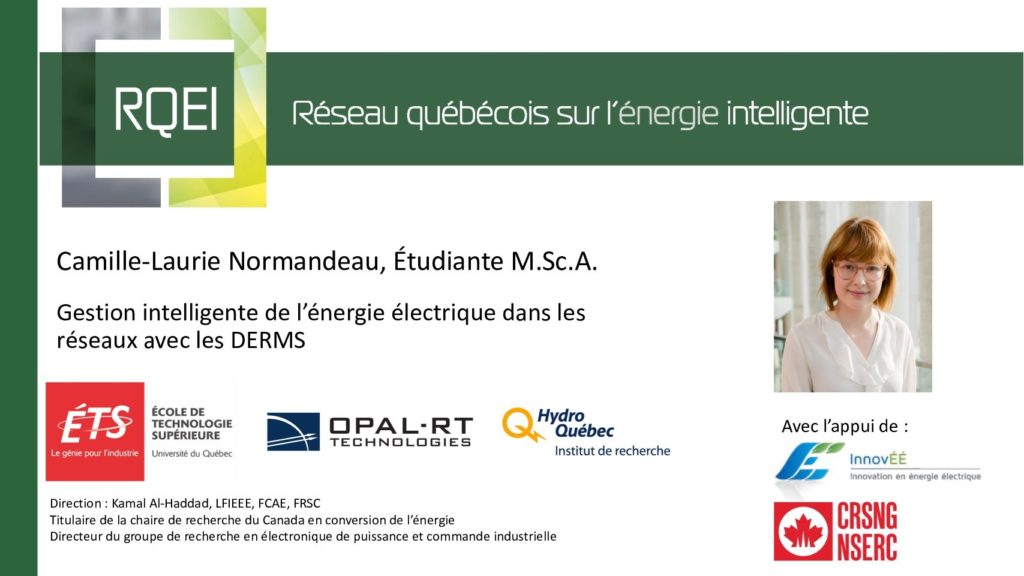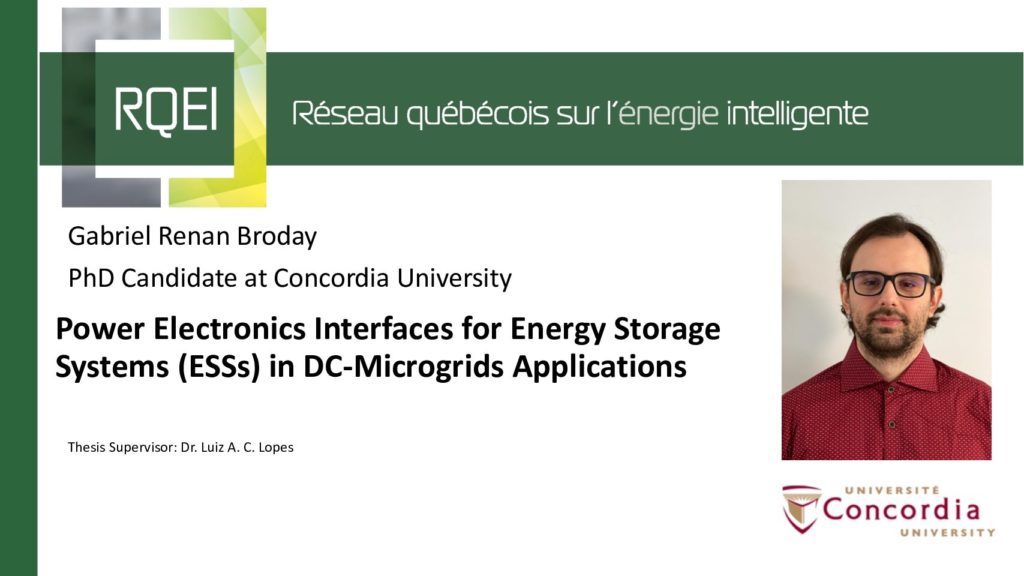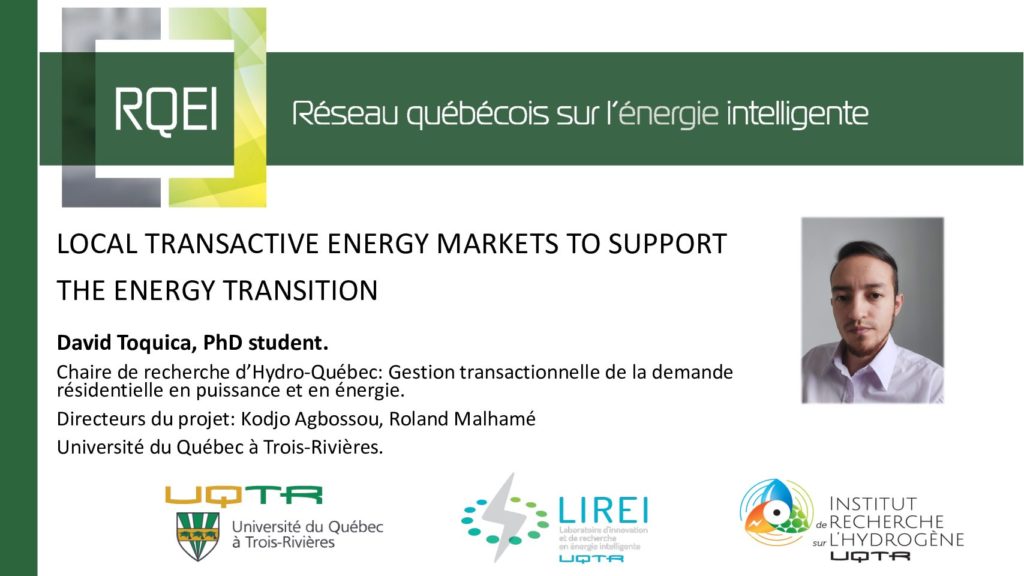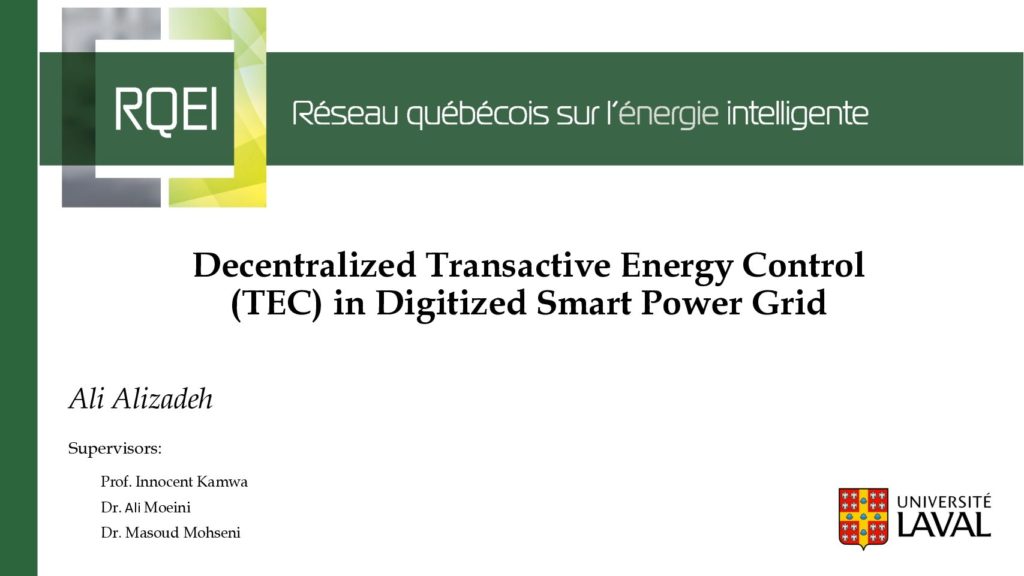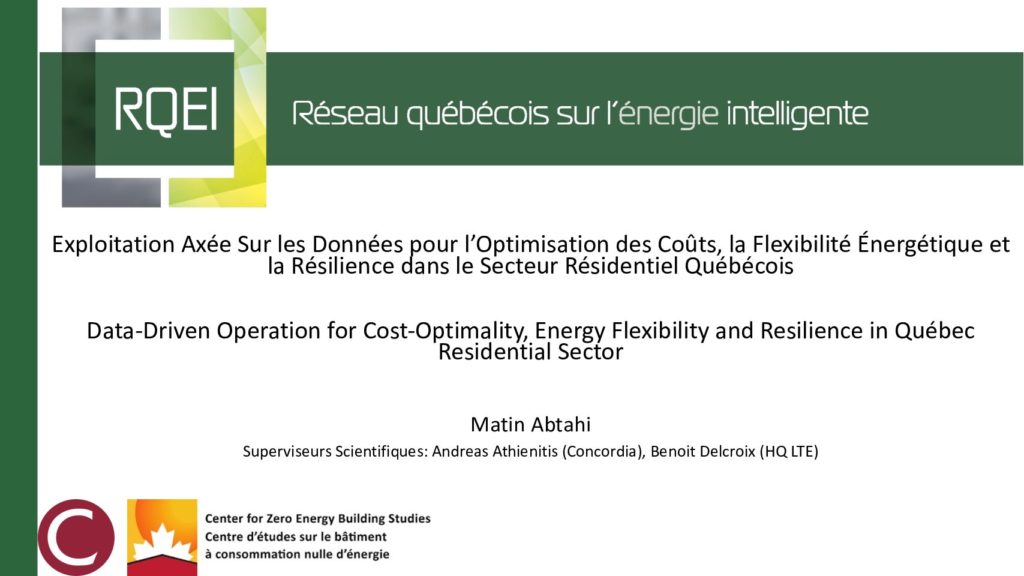La numérisation des réseaux électriques :
recherches actuelles et perspectives
Dialogue entre les étudiants et les professionnels de l’industrie électrique du Québec
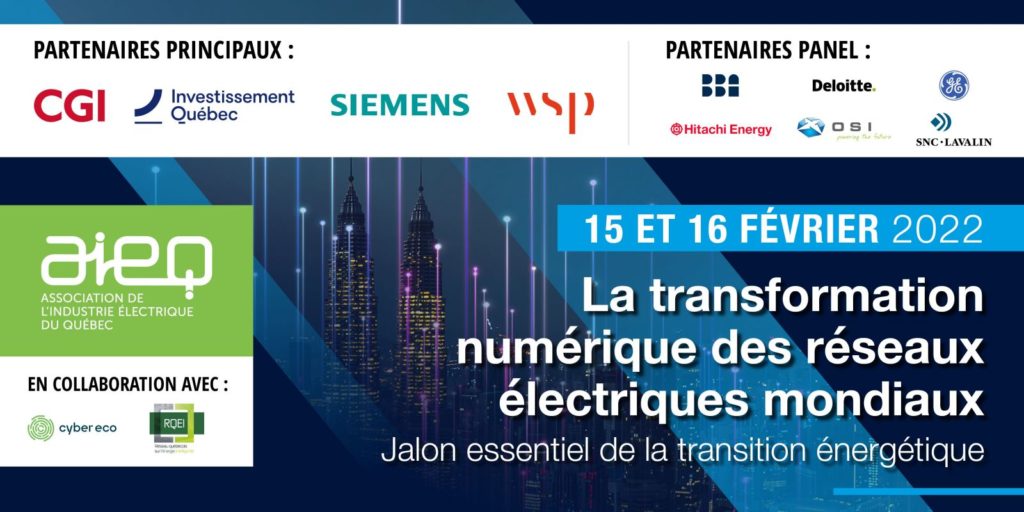
Pour consulter le programme complet : https://aieq.net/wp-content/uploads/2022/02/Programme-Forum_vf_vfr.pdf
Animateurs :
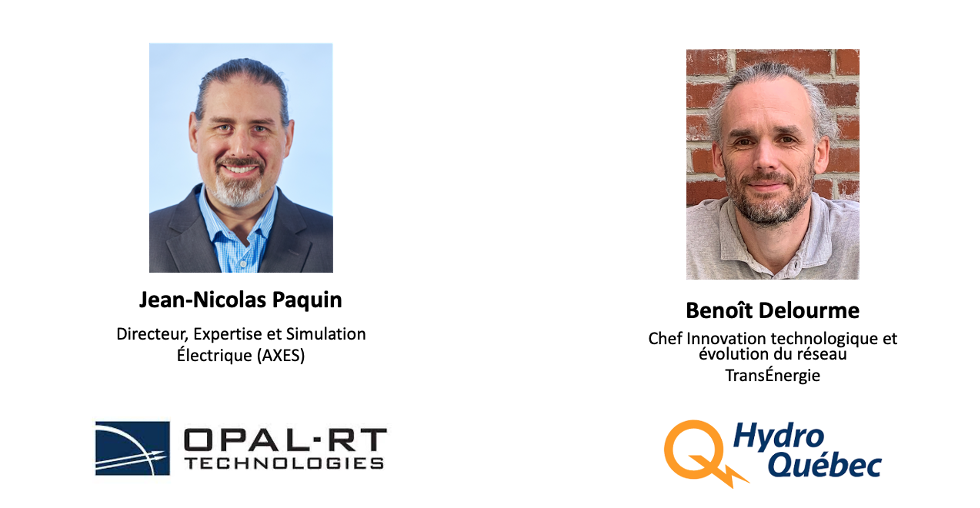
Présentations des étudiants
Gestion de l’énergie distribuée et conversion
Mohammad Babaie, École de technologie supérieure
He is also a member of the Groupe de Recherche en Électronique de Puissance et Commande Industrielle, University of Quebec.
Camille-Laurie Normandeau, École de technologie supérieure
Camille-Laurie Normandeau a obtenu son diplôme B.Ing. en génie électrique de L’ÉTS en 2020. Pendant ses études en 2019, elle a rejoint le prof. Kamal Al-Haddad dans son laboratoire du GREPCI et a travaillé avec un étudiant à la maîtrise sur les convertisseurs multiniveaux. Depuis lors, elle a commencé sa maîtrise (M.Sc.A) sous le prof. Al-Haddad pour un projet collaboratif entre l’ÉTS, l’OPAL-RT et l’IREQ. Ses recherches portent sur la modélisation, l’optimisation et le contrôle des ressources énergétiques distribuées (RED) connectées au réseau, notamment les panneaux photovoltaïques, les systèmes de stockage d’énergie et les chargeurs pour véhicules électriques.
Gabriel Broday, Université Concordia
Gestion transactionnelle de l'énergie
David Toquica, Université du Québec à Trois-Rivières
David Toquica received the B.S. degrees in electronic and electrical engineering from the Escuela Colombiana de Ingeniería Julio Garavito, Bogota, Colombia, in 2014 and 2015, and the master’s degree in electronic engineering from the Universidad de Los Andes, Bogota, Colombia, in 2018. He is currently pursuing the Ph.D. degree in electrical engineering with the Smart Energy Research and Innovation Laboratory, Université du Québec à Trois-Rivières, QC, Canada. His research interests include energy markets, artificial intelligence applications for smarts grids, micro-grids integration, renewable energies, and energy utility theory.
Ali Alizadeh, Université Laval
Maîtrise de la demande en énergie
Mozaffar Etezadifar, Polytechnique Montréal
During his bachelor’s in Electrical Engineering, he obtained a minor degree in Economics and Management. It led Mozaffar to establish his first startup with his co-founders in 2013. He continued his Master’s in power management. This program revealed the considerable market value of the energy optimization industry, so he decided to get involved in this field practically, by working in a well-known measurement and instrumentation company. After two years, he joined the biggest industrial startup accelerator in Iran as the development manager. He connected many tech startups in the field of energy to the firms and industries that were dealing with energy efficiency problems.
Now, Mozaffar is in his third year of studies toward a Ph.D. in Electrical Engineering at Polytechnique Montreal. He wants to turn his Ph.D. thesis into a Canadian startup that facilitates energy optimization in power grids by using artificial intelligence.
Matin Abtahi, Université Concordia


